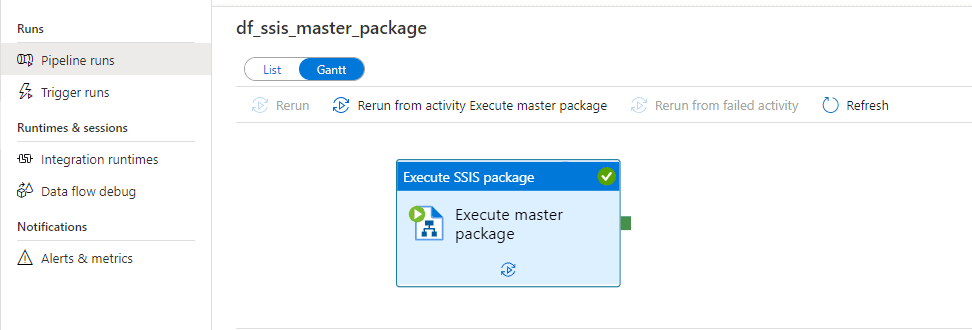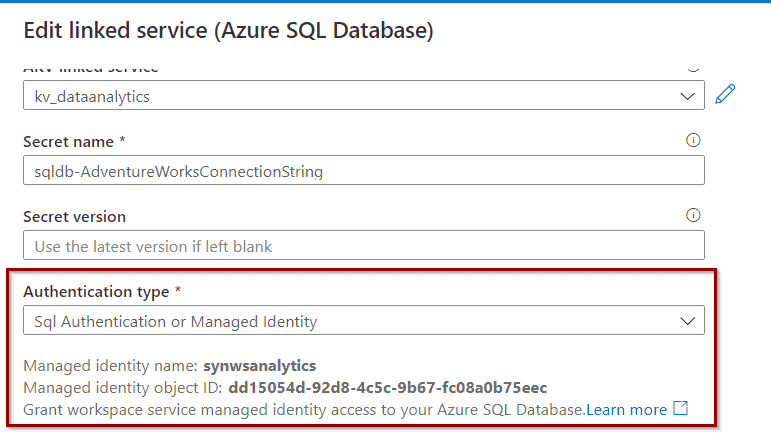In today’s post, I’m going to share the necessary script so you can update dates in your AdventureWorks Data Warehouse demo database.
In one of my previous blog posts, we looked at updating the AdventureWorks demo database to contain data up-to 2020, but what will happen next year? The data will be out-of-date! I will continue publishing backups in my Github, but having the code to update your data is great.
If you want to download a backup of this database with up-to-date data, use this link.
Table of Contents
Why would you want to update your AdventureWorks Database?
The Microsoft AdventureWorks databases are excellent training resources. However, the data is from 2014, making it difficult to showcase demos for stakeholders. You don’t want to have to explain why the data is old!
Script
Download the script from this link.
/*
Description:
---------- The script updates the date colums for the AdventureWorksDW database with recent dates and it inserts new dates in the date dimension.
---------- It uses the current year as the last year for the data in the Adventure Works database.
---------- AdventureWorksDW original database contains data from 2010 to 2014, ths script will update the data to be (current year - 4 yars) to current year
---------- The script deletes
leap year records
---------- For example: if the current year is 2021, the data after running the script will be from 2017 to 2021.
Author:
---------- David Alzamendi (https://techtalkcorner.com)
Date:
---------- 19/11/2020
*/
-- Declare variables
declare @CurrentYear int = year(getdate())
declare @LastDayCurrentYear date = DATEADD (dd, -1, DATEADD(yy, DATEDIFF(yy, 0, GETDATE()) +1, 0))
declare @MaxDateInDW int
select @MaxDateInDW = MAX(year(orderdate)) from [dbo].[FactInternetSales]
declare @YearsToAdd int = @CurrentYear - @MaxDateInDW
if (@YearsToAdd>0)
begin
-- Delete leap year records (February 29)
delete from FactCurrencyRate where month([Date]) = 2 and day([Date]) = 29
delete from FactProductInventory where month([MovementDate]) = 2 and day([MovementDate]) = 29
-- Drop foreign keys
alter table FactCurrencyRate drop constraint FK_FactCurrencyRate_DimDate
alter table FactFinance drop constraint FK_FactFinance_DimDate
alter table FactInternetSales drop constraint FK_FactInternetSales_DimDate
alter table FactInternetSales drop constraint FK_FactInternetSales_DimDate1
alter table FactInternetSales drop constraint FK_FactInternetSales_DimDate2
alter table FactProductInventory drop constraint FK_FactProductInventory_DimDate
alter table FactResellerSales drop constraint FK_FactResellerSales_DimDate
alter table FactSurveyResponse drop constraint FK_FactSurveyResponse_DateKey
-- Include more dates in Date dimension, the existing dates are not being replaced
--------------------------------------
--Populates the date dimension
-------------------------------------
DECLARE @startdate DATE = '2015-01-01' --change start date if required
,@enddate DATE = @LastDayCurrentYear --change end date if required
DECLARE @datelist TABLE (FullDate DATE)
--recursive date query
;WITH dt_cte
AS
(
SELECT @startdate AS FullDate
UNION ALL
SELECT DATEADD(DAY,1,FullDate) AS FullDate
FROM dt_cte
WHERE dt_cte.FullDate < @enddate
)
INSERT INTO @datelist
SELECT FullDate FROM dt_cte
OPTION (MAXRECURSION 0)
--Populate Date Dimension
SET DATEFIRST 7; -- Set the first day of the week to Monday
INSERT INTO [dbo].[dimdate]
( [DateKey]
,[FullDateAlternateKey]
,[DayNumberOfWeek]
,[EnglishDayNameOfWeek]
,[SpanishDayNameOfWeek]
,[FrenchDayNameOfWeek]
,[DayNumberOfMonth]
,[DayNumberOfYear]
,[WeekNumberOfYear]
,[EnglishMonthName]
,[SpanishMonthName]
,[FrenchMonthName]
,[MonthNumberOfYear]
,[CalendarQuarter]
,[CalendarYear]
,[CalendarSemester]
,[FiscalQuarter]
,[FiscalYear]
,[FiscalSemester]
)
SELECT CONVERT(INT,CONVERT(VARCHAR,dl.FullDate,112)) as DateKey
,dl.FullDate
,DATEPART(dw,dl.FullDate) as DayOfWeekNumber
,DATENAME(weekday,dl.FullDate) as DayOfWeekName
,case DATENAME(weekday,dl.FullDate)
when 'Monday' then 'Lunes'
when 'Tuesday' then 'Martes'
when 'Wednesday' then 'Miércoles'
when 'Thursday' then 'Jueves'
when 'Friday' then 'Viernes'
when 'Saturday' then 'Sábado'
when 'Sunday' then 'Doming'
end as SpanishDayNameOfWeek
,case DATENAME(weekday,dl.FullDate)
when 'Monday' then 'Lundi'
when 'Tuesday' then 'Mardi'
when 'Wednesday' then 'Mercredi'
when 'Thursday' then 'Jeudi'
when 'Friday' then 'Vendredi'
when 'Saturday' then 'Samedi'
when 'Sunday' then 'Dimanche'
end as SpanishDayNameOfWeek
,DATEPART(d,dl.FullDate) as DayOfMonthNumber
,DATEPART(dy,dl.FullDate) as DayOfYearNumber
,DATEPART(wk, dl.FullDate) as WeekOfYearNumber
,DATENAME(MONTH,dl.FullDate) as [MonthName]
,case DATENAME(MONTH,dl.FullDate)
when 'January' then 'Enero'
when 'February' then 'Febrero'
when 'March' then 'Marzo'
when 'April' then 'Abril'
when 'May' then 'Mayo'
when 'June' then 'Junio'
when 'July' then 'Julio'
when 'August' then 'Agosto'
when 'September' then 'Septiembre'
when 'October' then 'Octubre'
when 'November' then 'Noviembre'
when 'December' then 'Diciembre'
end as SpanishMonthName
,case DATENAME(MONTH,dl.FullDate)
when 'January' then 'Janvier'
when 'February' then 'Février'
when 'March' then 'Mars'
when 'April' then 'Avril'
when 'May' then 'Mai'
when 'June' then 'Juin'
when 'July' then 'Juillet'
when 'August' then 'Août'
when 'September' then 'Septembre'
when 'October' then 'Octobre'
when 'November' then 'Novembre'
when 'December' then 'Décembre'
end as FrenchMonthName
,MONTH(dl.FullDate) as MonthNumber
,DATEPART(qq, dl.FullDate) as CalendarQuarter
,YEAR(dl.FullDate) as CalendarYear
,CASE DATEPART(qq, dl.FullDate)
WHEN 1 THEN 1
WHEN 2 THEN 1
WHEN 3 THEN 2
WHEN 4 THEN 2
END AS CalendarSemester
,CASE DATEPART(qq, dl.FullDate)
WHEN 1 THEN 3
WHEN 2 THEN 4
WHEN 3 THEN 1
WHEN 4 THEN 2
END as FiscalQuarter
,CASE DATEPART(qq, dl.FullDate)
WHEN 1 THEN YEAR(dl.FullDate) -1
WHEN 2 THEN YEAR(dl.FullDate) -1
WHEN 3 THEN YEAR(dl.FullDate)
WHEN 4 THEN YEAR(dl.FullDate)
END as FiscalYear
,CASE DATEPART(qq, dl.FullDate)
WHEN 1 THEN 2
WHEN 2 THEN 2
WHEN 3 THEN 1
WHEN 4 THEN 1
END as FiscalSemester
FROM @datelist dl
LEFT JOIN [dbo].[dimdate] dt
ON dt.FullDateAlternateKey = dl.FullDate
WHERE dt.DateKey IS NULL
ORDER BY DateKey DESC
-- Date (data type: date)
-- Birth Date and Hire Date are not being updated
update DimCustomer set DateFirstPurchase = case when DateFirstPurchase is not null then dateadd(year,@YearsToAdd,DateFirstPurchase) end
update DimEmployee set StartDate = case when StartDate is not null then dateadd(year,@YearsToAdd,StartDate) end
update DimEmployee set EndDate = case when EndDate is not null then dateadd(year,@YearsToAdd,EndDate) end
update DimProduct set StartDate = case when StartDate is not null then dateadd(year,@YearsToAdd,StartDate) end
update DimProduct set EndDate = case when EndDate is not null then dateadd(year,@YearsToAdd,EndDate) end
update DimPromotion set StartDate = case when StartDate is not null then dateadd(year,@YearsToAdd,StartDate) end
update DimPromotion set EndDate = case when EndDate is not null then dateadd(year,@YearsToAdd,EndDate) end
update FactCallCenter set Date = case when Date is not null then dateadd(year,@YearsToAdd,Date) end
update FactCurrencyRate set Date = case when Date is not null then dateadd(year,@YearsToAdd,Date) end
update FactFinance set Date = case when Date is not null then dateadd(year,@YearsToAdd,Date) end
update FactInternetSales set OrderDate = case when OrderDate is not null then dateadd(year,@YearsToAdd,OrderDate) end
update FactInternetSales set DueDate = case when DueDate is not null then dateadd(year,@YearsToAdd,DueDate) end
update FactInternetSales set ShipDate = case when ShipDate is not null then dateadd(year,@YearsToAdd,ShipDate) end
update FactProductInventory set MovementDate = case when MovementDate is not null then dateadd(year,@YearsToAdd,MovementDate) end
update FactResellerSales set OrderDate = case when OrderDate is not null then dateadd(year,@YearsToAdd,OrderDate) end
update FactResellerSales set DueDate = case when DueDate is not null then dateadd(year,@YearsToAdd,DueDate) end
update FactResellerSales set ShipDate = case when ShipDate is not null then dateadd(year,@YearsToAdd,ShipDate) end
update FactSalesQuota set Date = case when Date is not null then dateadd(year,@YearsToAdd,Date) end
update FactSurveyResponse set Date = case when Date is not null then dateadd(year,@YearsToAdd,Date) end
-- DateKey (data type: int)
update FactCallCenter set DateKey = case when DateKey is not null then CAST(convert(varchar,[Date],112) as int) end
update FactCurrencyRate set DateKey = case when DateKey is not null then CAST(convert(varchar,[Date],112) as int) end
update FactFinance set DateKey = case when DateKey is not null then CAST(convert(varchar,[Date],112) as int) end
update FactInternetSales set DueDateKey = case when DueDateKey is not null then CAST(convert(varchar,[DueDate],112) as int) end
update FactInternetSales set OrderDateKey = case when OrderDateKey is not null then CAST(convert(varchar,[OrderDate],112) as int) end
update FactInternetSales set ShipDateKey = case when ShipDateKey is not null then CAST(convert(varchar,[ShipDate],112) as int) end
update FactProductInventory set DateKey = case when DateKey is not null then CAST(convert(varchar,[MovementDate],112) as int) end
update FactResellerSales set DueDateKey = case when DueDateKey is not null then CAST(convert(varchar,[ShipDate],112) as int) end
update FactResellerSales set OrderDateKey = case when OrderDateKey is not null then CAST(convert(varchar,[ShipDate],112) as int) end
update FactResellerSales set ShipDateKey = case when ShipDateKey is not null then CAST(convert(varchar,[ShipDate],112) as int) end
update FactSalesQuota set DateKey = case when DateKey is not null then CAST(convert(varchar,[Date],112) as int) end
update FactSurveyResponse set DateKey = case when DateKey is not null then CAST(convert(varchar,[Date],112) as int) end
-- Update tables where year is a number in the format YYYY
update FactSalesQuota set CalendarYear = case when CalendarYear is not null then @YearsToAdd + CalendarYear end
update DimReseller set FirstOrderYear = case when FirstOrderYear is not null then @YearsToAdd + FirstOrderYear end
update DimReseller set LastOrderYear = case when LastOrderYear is not null then @YearsToAdd + LastOrderYear end
update DimReseller set YearOpened = case when YearOpened is not null then @YearsToAdd + YearOpened end
-- Add back CONSTRAINTS
ALTER TABLE [dbo].[FactCurrencyRate] WITH CHECK ADD CONSTRAINT [FK_FactCurrencyRate_DimDate] FOREIGN KEY([DateKey])
REFERENCES [dbo].[DimDate] ([DateKey])
ALTER TABLE [dbo].[FactCurrencyRate] CHECK CONSTRAINT [FK_FactCurrencyRate_DimDate]
ALTER TABLE [dbo].[FactFinance] WITH CHECK ADD CONSTRAINT [FK_FactFinance_DimDate] FOREIGN KEY([DateKey])
REFERENCES [dbo].[DimDate] ([DateKey])
ALTER TABLE [dbo].[FactFinance] CHECK CONSTRAINT [FK_FactFinance_DimDate]
ALTER TABLE [dbo].[FactInternetSales] WITH CHECK ADD CONSTRAINT [FK_FactInternetSales_DimDate] FOREIGN KEY([OrderDateKey])
REFERENCES [dbo].[DimDate] ([DateKey])
ALTER TABLE [dbo].[FactInternetSales] CHECK CONSTRAINT [FK_FactInternetSales_DimDate]
ALTER TABLE [dbo].[FactInternetSales] WITH CHECK ADD CONSTRAINT [FK_FactInternetSales_DimDate1] FOREIGN KEY([DueDateKey])
REFERENCES [dbo].[DimDate] ([DateKey])
ALTER TABLE [dbo].[FactInternetSales] CHECK CONSTRAINT [FK_FactInternetSales_DimDate1]
ALTER TABLE [dbo].[FactInternetSales] WITH CHECK ADD CONSTRAINT [FK_FactInternetSales_DimDate2] FOREIGN KEY([ShipDateKey])
REFERENCES [dbo].[DimDate] ([DateKey])
ALTER TABLE [dbo].[FactInternetSales] CHECK CONSTRAINT [FK_FactInternetSales_DimDate2]
ALTER TABLE [dbo].[FactProductInventory] WITH CHECK ADD CONSTRAINT [FK_FactProductInventory_DimDate] FOREIGN KEY([DateKey])
REFERENCES [dbo].[DimDate] ([DateKey])
ALTER TABLE [dbo].[FactProductInventory] CHECK CONSTRAINT [FK_FactProductInventory_DimDate]
ALTER TABLE [dbo].[FactResellerSales] WITH CHECK ADD CONSTRAINT [FK_FactResellerSales_DimDate] FOREIGN KEY([OrderDateKey])
REFERENCES [dbo].[DimDate] ([DateKey])
ALTER TABLE [dbo].[FactResellerSales] CHECK CONSTRAINT [FK_FactResellerSales_DimDate]
ALTER TABLE [dbo].[FactSurveyResponse] WITH CHECK ADD CONSTRAINT [FK_FactSurveyResponse_DateKey] FOREIGN KEY([DateKey])
REFERENCES [dbo].[DimDate] ([DateKey])
ALTER TABLE [dbo].[FactSurveyResponse] CHECK CONSTRAINT [FK_FactSurveyResponse_DateKey]
end After running the script, the data will be up-to-date.
What’s Next?
In upcoming posts, I’ll continue to explore some of the great features and services available in the data analytics space within Azure services.
If you have any questions or there is anything specific that you’d like to learn about, please leave me a comment below!






4 Responses
Ruud Jeursen
14 . 05 . 2021Thanks David for all the effort you put into this, it was exactly what I needed and it worked like a charm !!
Ruud Jeursen
The Netherlands
David Alzamendi
25 . 05 . 2021Thank you for your feedback Ruud!
David Alzamendi
27 . 06 . 2021Thank you for your feedback!
Victor
03 . 01 . 2022Is it possible the script doesn’t work anymore?
I just tried to update the A.W. DW to 2022, but nothing gets updated.